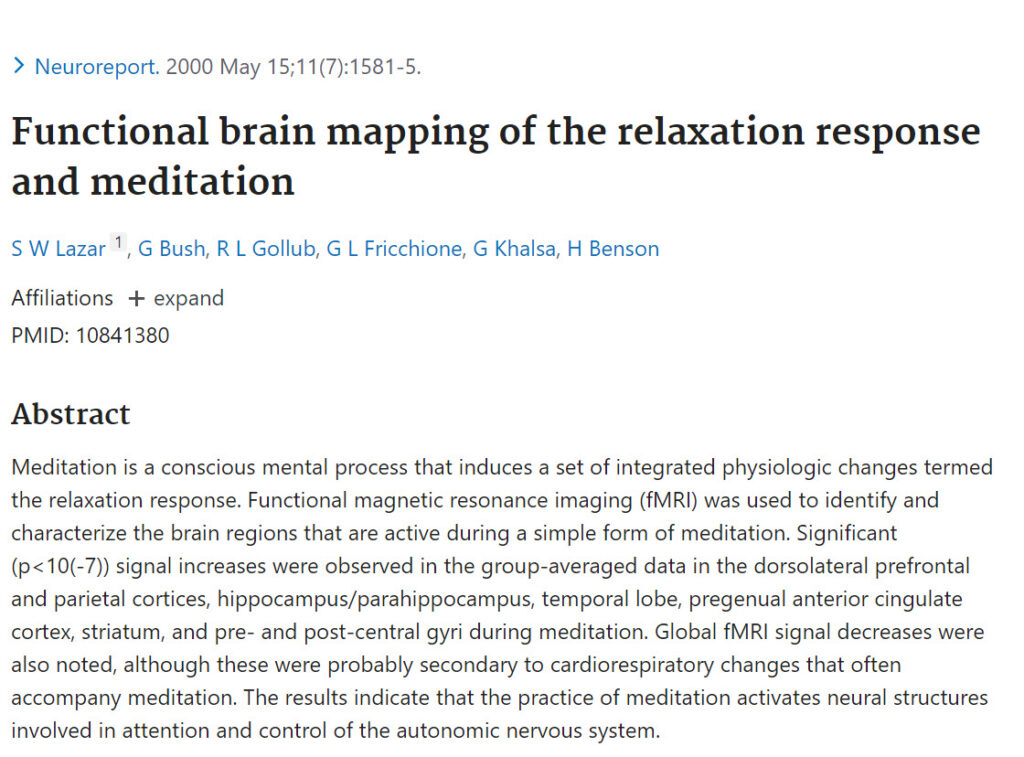Meditation is a conscious mental process that induces a set of integrated physiologic changes termed the relaxation response. Functional magnetic resonance imaging (fMRI) was used to identify and characterize the brain regions that are active during a simple form of meditation. Significant (p<10(-7)) signal increases were observed in the group-averaged data in the dorsolateral prefrontal and parietal cortices, hippocampus/parahippocampus, temporal lobe, pregenual anterior cingulate cortex, striatum, and pre- and post-central gyri during meditation. Global fMRI signal decreases were also noted, although these were probably secondary to cardiorespiratory changes that often accompany meditation. The results indicate that the practice of meditation activates neural structures involved in attention and control of the autonomic nervous system.
Functional brain mapping of the relaxation response and meditation
Publication
Neuroreport
11(7):1581-5
Abstract
Web and Email Links
Related Listings
Journal
Journal of Integrative and Complementary Medicine
Several hundred peer-reviewed studies in the past 20 years have shown that the relaxation response and mind–body interventions are clinically effective in the treatment of many health problems that are caused or made worse by stress. Recent studies show that mind–body interventions may improve prognosis in coronary heart disease and can enhance immune functioning. It is hypothesized that mind–body interventions reduce sympathetic nervous system activation and increase parasympathetic […]
Journal
Headache - The Journal and Head and Face Pain
Supported, in part, by grants from the United States Public Health Service (HL 14486-01, HL 10539-06, and RR-76 front the General Clinical Research Centers Program of the Division of Research Resources), the General Service Foundation, the Headache Research Foundation, and the Sandoz Foundation, Inc.
Journal
Am. J. Public Health
An experiment conducted at the corporate offices of a manufacturing firm investigated the effects of daily relaxation breaks on five self-reported measures of health, performance, and well-being. For 12 weeks, 126 volunteers filled out daily records and reported bi-weekly for additional measurements. After four weeks of baseline monitoring, they were divided randomly into three groups: Group A was taught a technique for producing the relaxation response; Group B was instructed to sit […]

